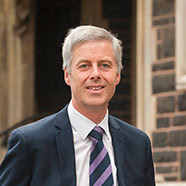 Monday 8 January 2018 10:11am
Monday 8 January 2018 10:11am No, this is not the 150th volume of outstanding research highlights from the University of Otago, but rather this edition is timed to celebrate 150 years of scholarship, learning and research at our beautiful university. It is the legacy of the last century and a half that we celebrate herein.
No, this is not the 150th volume of outstanding research highlights from the University of Otago, but rather this edition is timed to celebrate 150 years of scholarship, learning and research at our beautiful university. It is the legacy of the last century and a half that we celebrate herein.
Using the past to anchor our place in the world today and to look to the future with hope, we have carefully selected themes – each with fine and famous alumni personifying past efforts in these areas – around which to bring you up to date with highlights of our current outstanding research. And what a fine set of alumni we have to choose from.
Sapere aude – daring to be wise as our motto compels us – reminds us of the role of our university to challenge conventional wisdom, break new ground, push intellectual and political boundaries, without favour or fear of failure. Janet Frame, exploring the inner depths of her life through outward literary expressions, or Lloyd Geering challenging modern religious doctrine to its core, showed a desire to reveal greater good or greater meaning. Daring to be wise today, we contrast these and other pioneers with work ranging from the moral and ethical issues of sharing the burdens of a changing climate, to hope-into-action studies tackling some of the profound issues of social engagement and well-being for youth in Aotearoa,
Our place in the world is clearly and squarely imbedded with Māori and Pacific peoples and communities; fusion of traditional indigenous knowledge systems and western approaches represents the future for much of our research, so we celebrate past pioneers and current contributors to this wave of change. Te Rangi Hiroa, who worked across medical, anthropological, political and traditional approaches through his long and distinguished career, remains an inspiration, with alumnus Ratu Sir Kamisese Mara leading Fiji to independence in 1960 notable also. Today we have new leaders such as Tangiwai Rewi preserving and shaping the future of te reo Māori in education and Diana Sarfati working to understand and reduce inequalities in cancer outcomes for Pacific peoples.
Contributing to healthy futures for our families and communities has also been an enduring theme for Otago scholarship, where we have had the privilege to celebrate many firsts – from Ratu Dovi Madraiwiwi as Fiji's first fully-qualified doctor in 1930, through Kathleen Anneui Pih-Chang as New Zealand's first medical graduate of Chinese descent, to Dr Muriel Bell and the major public health and nutritional interventions she contributed to in and around the period of World War Two. In this edition we showcase current approaches, building on ground-breaking work of alumnus Sir Robert Webster in understanding influenza epidemics, to show how modern health epidemics in cancer, smoking or obesity can be attacked successfully.
With our 150th anniversary coming straight after New Zealand celebrating 125 years of women's suffrage, it is only right that we recognise our famous first women students, scholars and researchers here. The names of Caroline Freeman, Emily Siedeberg and Ethel Benjamin are very familiar to us; building on their stories and leadership we feature the breadth of contributions being made by our female scholars and researchers across domains of chemistry (Carla Meledandri and her magical nanoparticles), history (Barbara Brookes and her seminal history of New Zealand women), business (Ros Whiting and the need to change the gender balance in the boardroom) and legal scholarship (Ceri Warnock and her re-thinking of environmental law).
Finally, but by no means least significantly, our kaitiakitanga values and principles are highlighted, with the legendary Sir Alan Mark and his unrelenting career of evidence-based environmental campaigning as our shining example. Sir Alan's work continues strongly beyond his formal retirement and around him we tell you about new work our research teams are undertaking to understand how we should – and why we must – care for and protect the complex ecosystems in our Antarctic, marine, alpine and lowland environments – without their preservation and enhancement, the value of all the other work we do to care for our people and communities will be diminished significantly.I trust you will appreciate the significance of the research we have chosen to highlight and that you will share the features with your friends and colleagues, wherever you may be.
Professor Richard Blaikie
Deputy Vice-Chancellor (Research and Enterprise)
